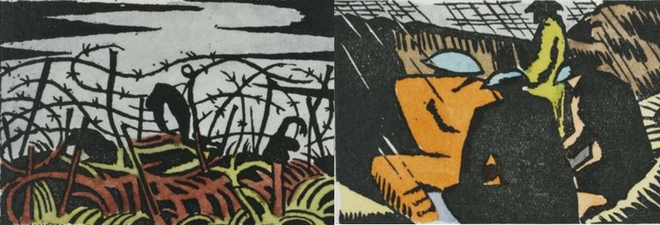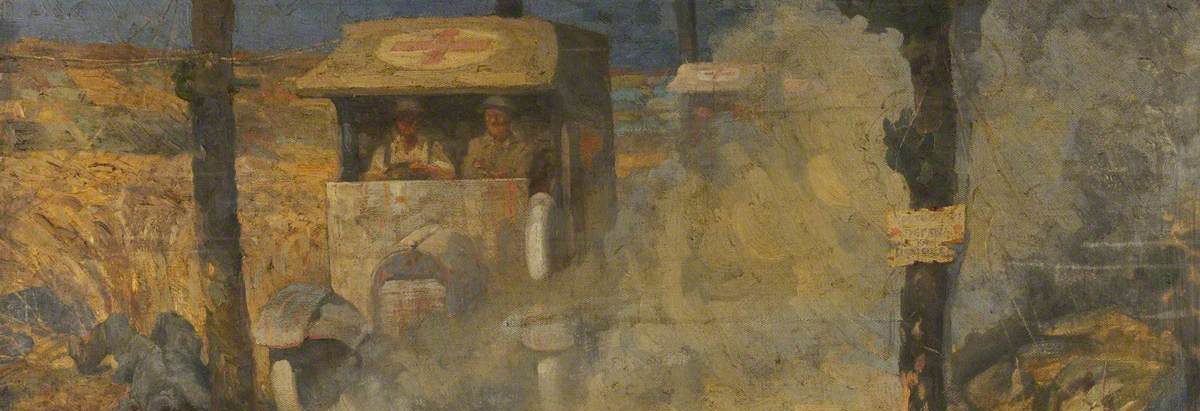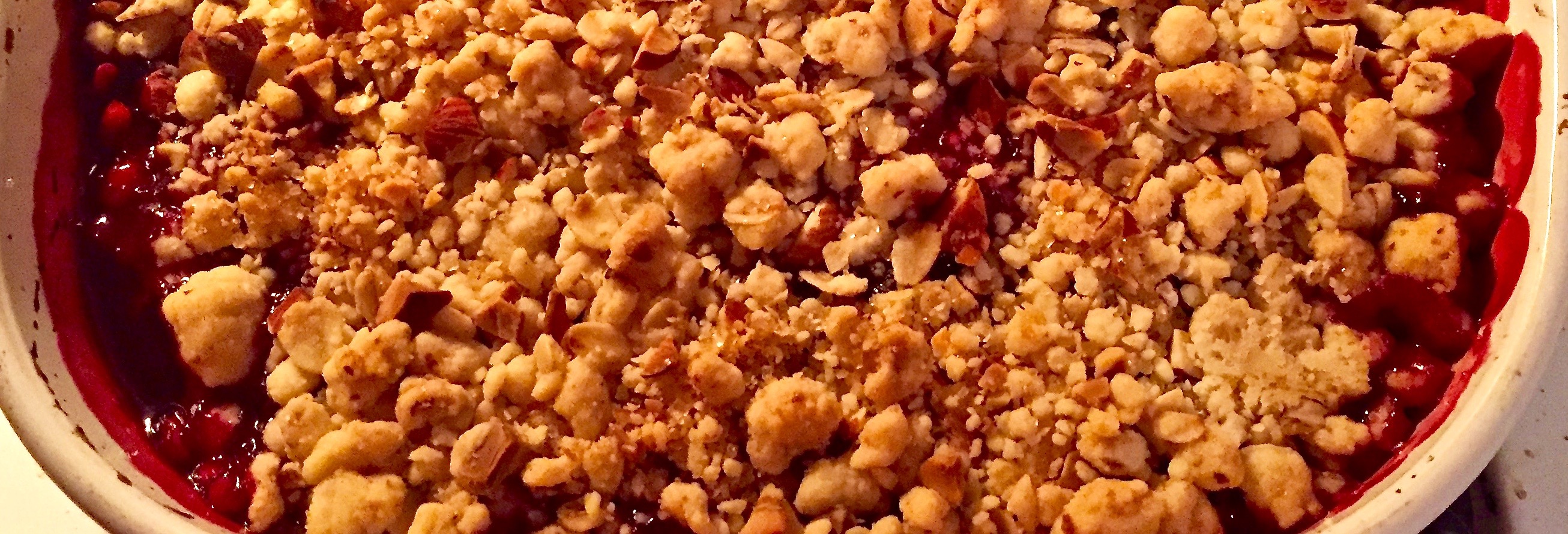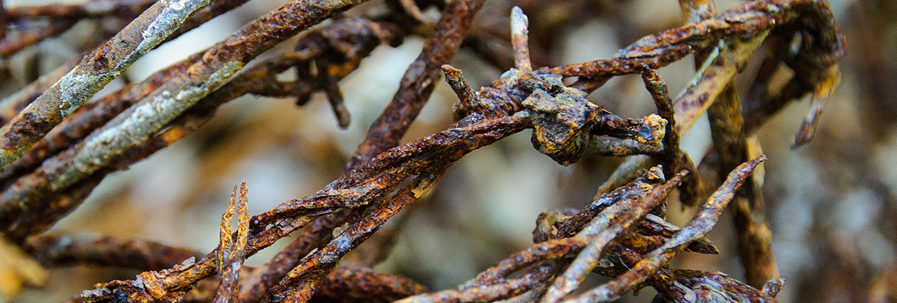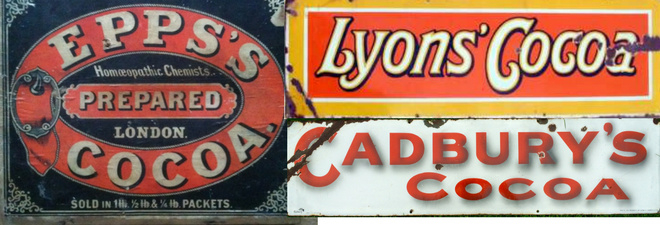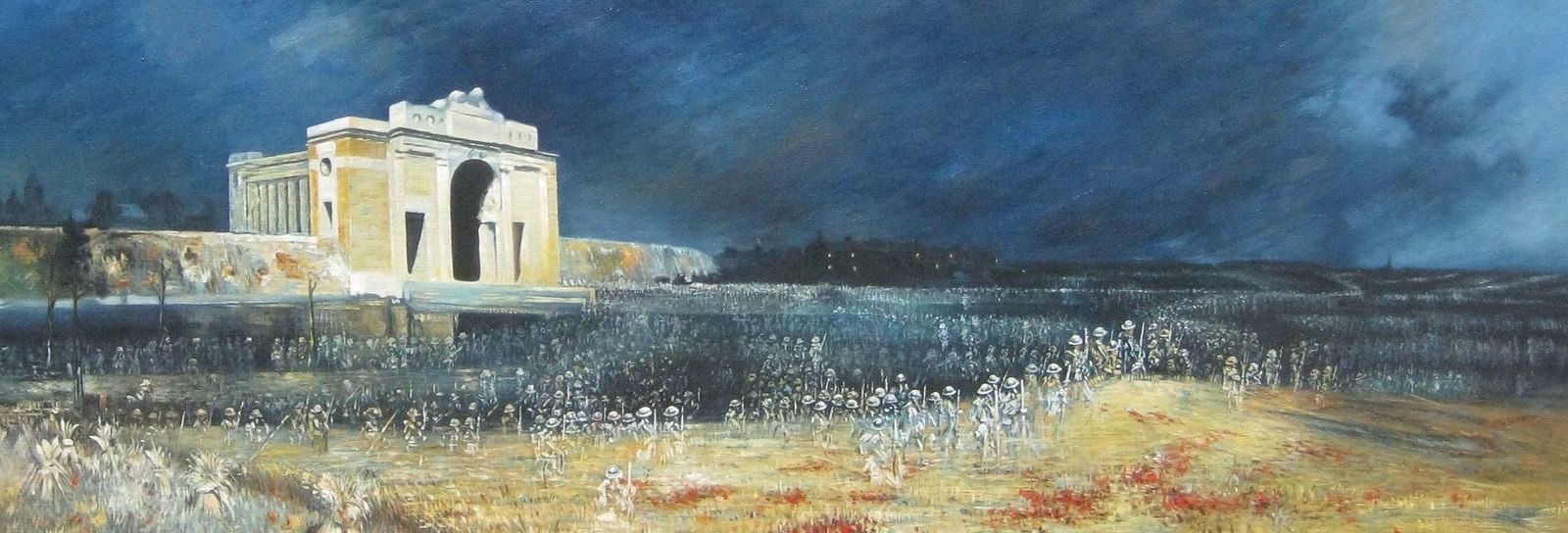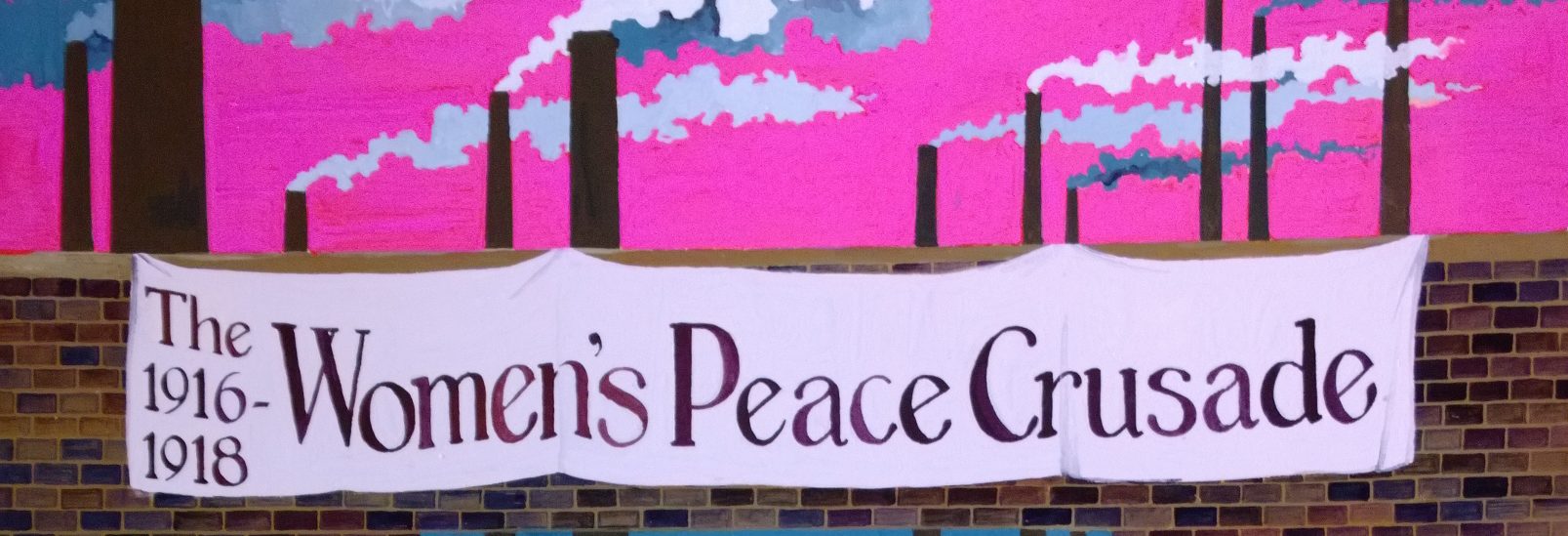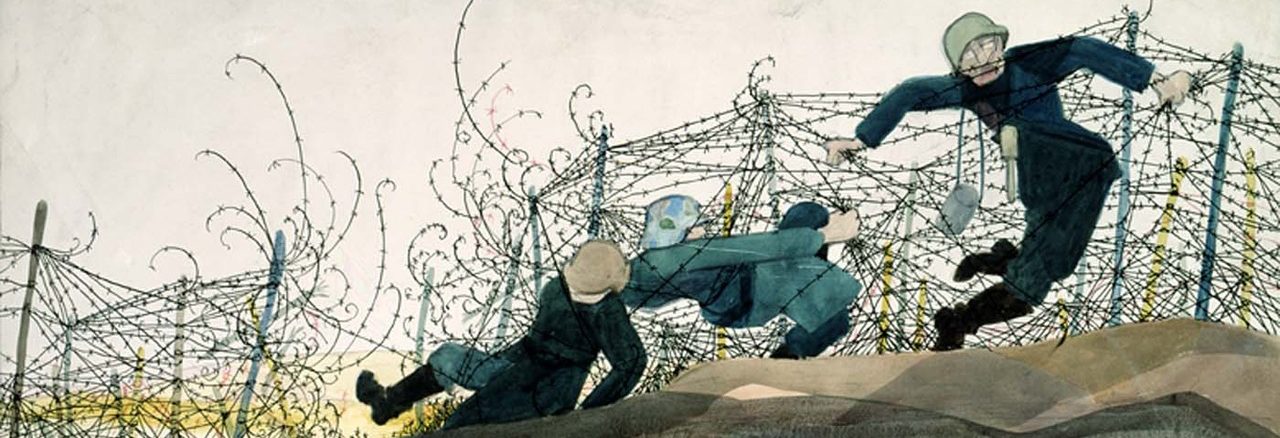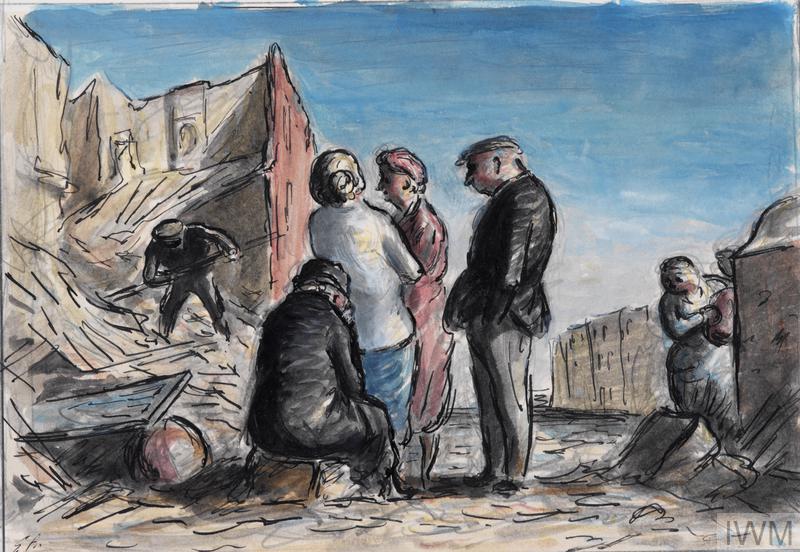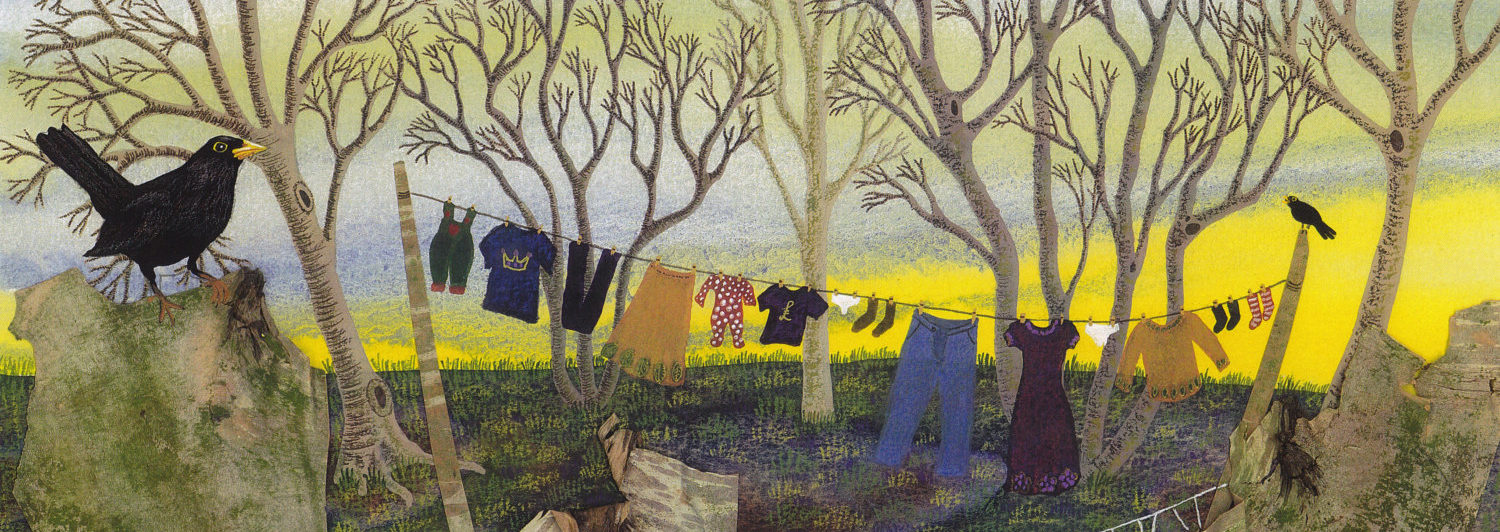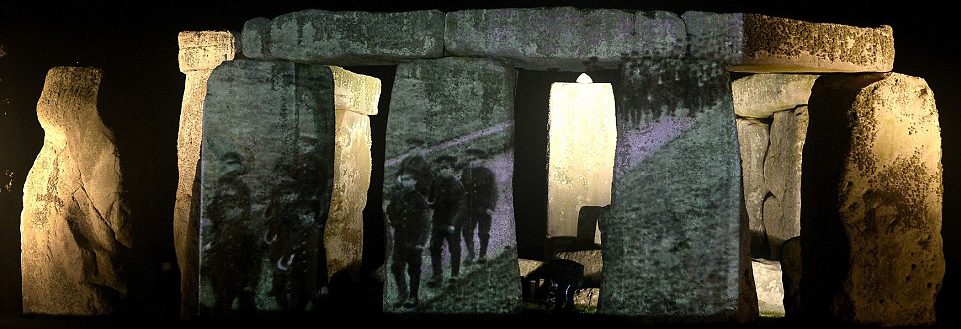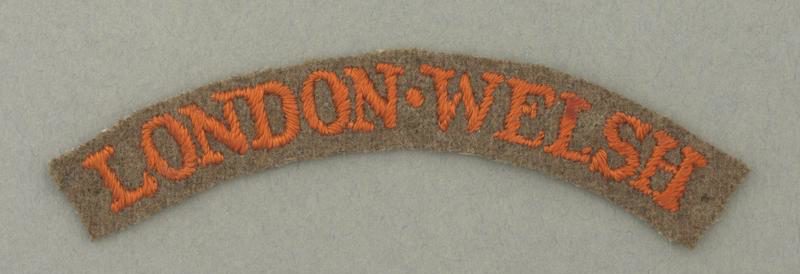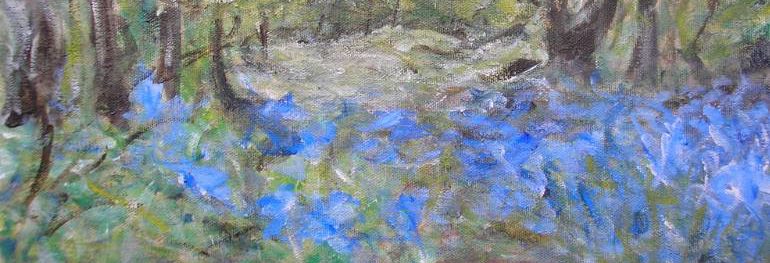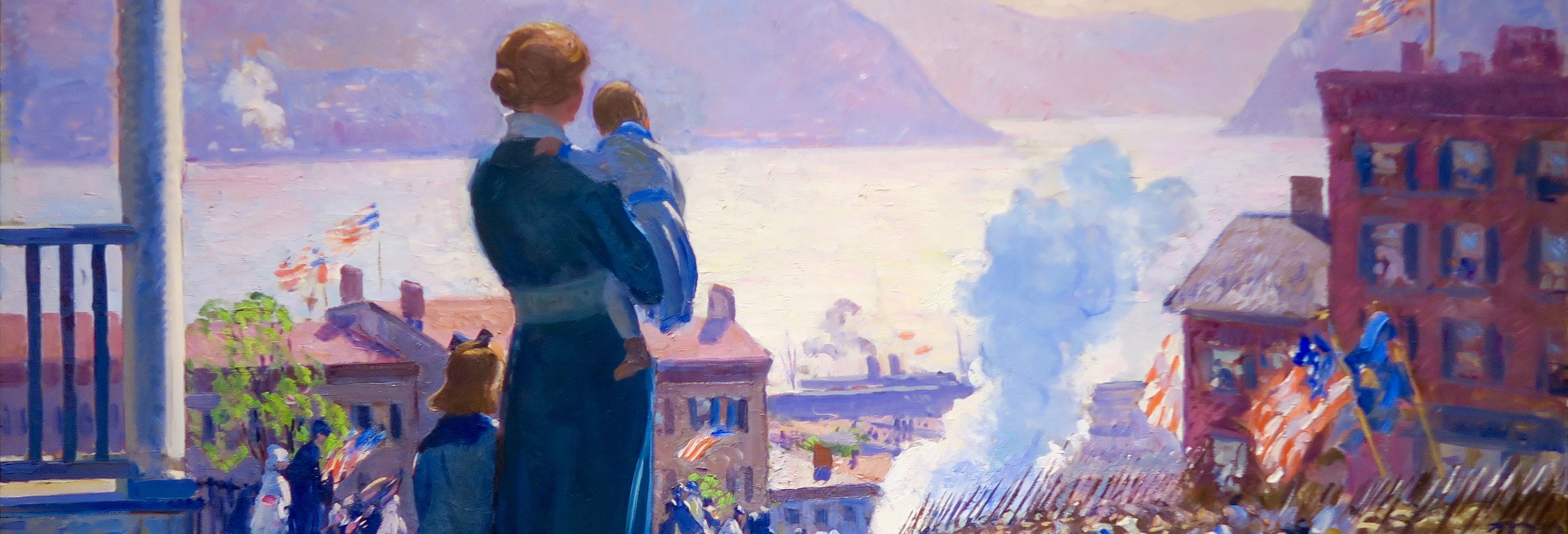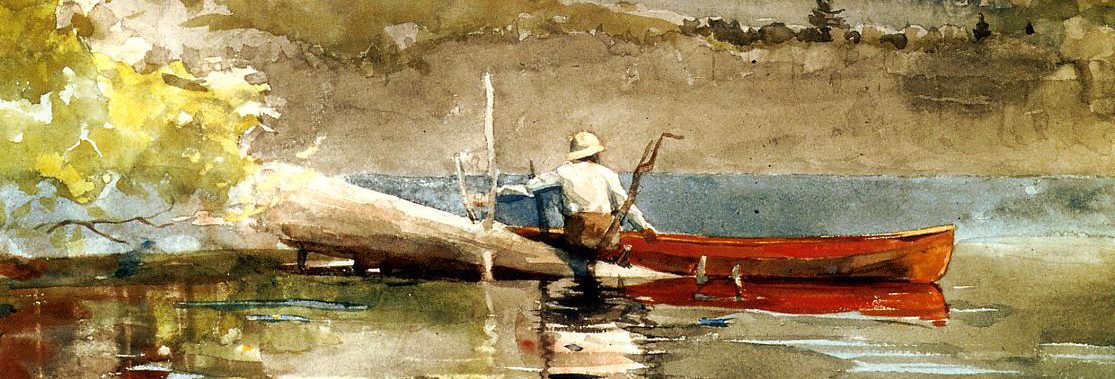Some authors are blessed with illustrators who enhance their work with the distinction of their own. So it was in 1919 with Richard Aldington. When Images of War was first published it was with a cover design and eleven colored woodcut illustrations by Paul Nash. They are matched with poems and depict scenes from the western front – trenches, bombardment, ruins, barbed wire,…
Category: WW1
Before The Charge: The Great Push, Loos, September 1915
Before the Charge The night is still and the air is keen, Tense with menace the time crawls by, In front is the town and its homes are seen, Blurred in outline against the sky. The dead leaves float in the sighing air, The darkness moves like a curtain drawn, A veil which the morning sun will tear From the…
Blackberry and Apple Crumble
If we had some bacon we could have bacon and eggs but we’ve got no eggs. That First World War catch phrase came to mind as I was contemplating an idle wish to make blackberry and apple crumble. I imagine a Bruce Bairnsfather cartoon with Old Bill and Alf or Bert grousing about the food while the whizz bangs fly…
August 1914
August 1914 What in our lives is burnt In the fire of this? The heart’s dear granary? The much we shall miss? Three lives hath one life – Iron, honey, gold. The gold, the honey gone – Left is the hard and cold. Iron are our lives Molten right through our youth. A burnt space through ripe fields A fair…
MCMXIV
MCMXIV Those long uneven lines Standing as patiently As if they were stretched outside The Oval or Villa Park, The crowns of hats, the sun On moustached archaic faces Grinning as if it were all An August Bank Holiday lark; And the shut shops, the bleached Established names on the sunblinds, The farthings and sovereigns, And dark-clothed children at play…
Ballad of the Three Spectres
In Ivor Gurney’s nightmarish vision, the dead among the living bear dire warnings and mockery. Ballad of the Three Spectres As I went up by Ovillers In mud and water cold to the knee, There went three jeering, fleering spectres, That walked abreast and talked of me. The first said, ‘Here’s a right brave soldier That walks the dark unfearingly;…
The Poltroon
Poltroon – the very word is like a … what? a.) A North American mammal of the raccoon family known for its habit of rooting for grubs in the undergrowth of deciduous forests b.) A metal or earthenware pot typically having a funnel-shaped top, often kept under the bed c.) An abject or contemptible coward, lacking courage; ignobly timid and faint-hearted. The Poltroon…
The Dancers
The Dancers All day beneath the hurtling shells Before my burning eyes Hover the dainty demoiselles — The peacock dragon-flies. Unceasingly they dart and glance Above the stagnant stream — And I am fighting here in France As in a senseless dream. A dream of shattering black shells That hurtle overhead, And dainty dancing demoiselles Above the dreamless dead. …
The End and the Beginning
The End and the Beginning After every war someone has to clean up. Things won’t straighten themselves up, after all. Someone has to push the rubble to the side of the road, so the corpse-filled wagons can pass. Someone has to get mired in scum and ashes, sofa springs, splintered glass, and bloody rags. Someone has to drag…
Blackbird
Blackbirds are notorious for being able to mimic the sounds they hear as they hop about the celestial chimney pots of suburbia. Ice cream van jingles, phone ring tones, car alarms and ambulance sirens – they can do the lot. John Drinkwater – born in Leytonstone, London – writes about the song of the blackbird in Loyalties – the anthology…
Song of the Dark Ages
Song of the Dark Ages We digged our trenches on the down Beside old barrows, and the wet White chalk we shovelled from below; It lay like drifts of thawing snow On parados and parapet: Until a pick neither struck flint Nor split the yielding chalky soil, But only calcined human bone: Poor relic of that Age…
In Parenthesis: Part 1
This writing has to do with some things I saw, felt and was part of. The period covered begins in early December 1915 and ends in July 1916. – David Jones, in the preface to In Parenthesis 1937 In Parenthesis is a poem-novella in seven parts that culminates in the dramatic attack on Mametz Wood at the Battle of the…
In Memoriam (Easter, 1915)
In Memoriam (Easter, 1915) The flowers left thick at nightfall in the wood This Eastertide call into mind the men, Now far from home, who, with their sweethearts, should Have gathered them and will do never again. by Edward Thomas Three British soldiers waiting in a trench. One stands leaning against the wall of the trench, another sits…
Art and Treason: War Crimes and Responsibility
The Party told you to reject the evidence of your eyes and ears. It was their final, most essential command. His heart sank as he thought of the enormous power arrayed against him, the ease with which any Party intellectual would overthrow him in debate, the subtle arguments which he would not be able to understand, much less answer. And…
Thaw
Thaw by Edward Thomas Over the land freckled with snow half-thawed The speculating rooks at their nests cawed And saw from elm-tops, delicate as flowers of grass, What we below could not see, Winter pass. Thomas wrote all his poetry in a three-year burst of creativity between 1914 and 1917. He had enlisted in 1915 and embarked for France at…
